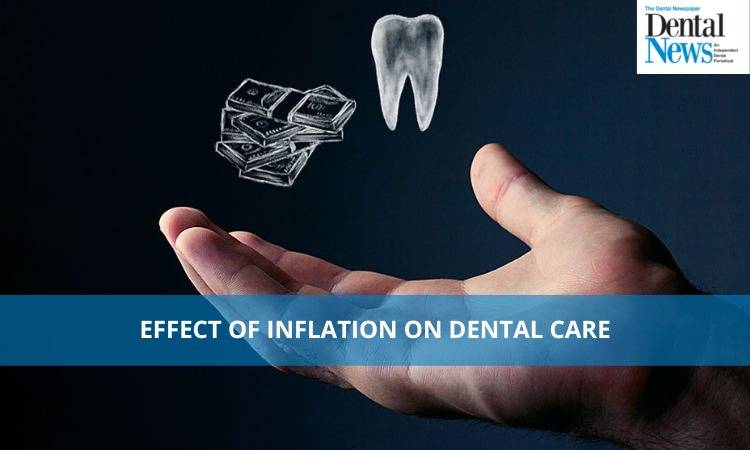
The increasing cost of living is affecting the UK severely, with inflation at its highest level in 40 years and predictions that interest rates could reach 2% in the upcoming year.
Rising Inflation Affects Dental Industry
Dental care is not exempt from the rise in general pricing (inflation) that has recently been the subject of much discussion. Inflation is distinct from other economic factors since it essentially acts as a "hidden tax" on both consumers and professionals. Consumer demand for dental care may decline as a result of competing demands on their budgets, and dental clinics may have poorer profitability due to the greater operating costs.
With an excess of 11%, the inflation rate in the dental sector is much greater. Lab expenses are growing by 15%, and about 20% of dentists are seeing more than 50% utility price hikes. Costs for dental services have increased in line with the general increase in prices brought on by inflation.
Patients and those who are providing care for them are experiencing financial hardship. No one was receiving routine care at the start of the epidemic, according to Bryanne Chandler, a dentist with offices in Colchester and Kensington. At the time, only patients in need of emergency or urgent care may visit the dentist. However, some patients have been delaying returning to their chairs while waiting rooms have reopened, which has led to a significant bacterial and dental cavity accumulation.
Companies and individuals may afford to borrow more money when interest rates are low. However, if there isn't much demand for their products, they simply don't make enough money to cover their mounting debt. The government raises interest rates to deter people from borrowing money in order to stop this. This results in a second "planned" crisis.
As inflation has impacted all areas of the economy and has an impact on our way of life, the news media has started to pay greater attention to it. The amount of money that COVID-19 has poured into our economy also contributes to the threat of inflation.
Affect on Student Loans
Due to the direct correlation between the student loan interest rate and the yield on the 10-year Treasury note, which is modified regularly by the Department of Education, dental students are not immune to the effects of inflation while they are enrolled in dentistry school. The cost of financing consumer goods like a car or a house as well as dental office and equipment acquisitions could perhaps be greater for recent dental school graduates.
Dental practices have persisted in the midst of adversity, and the majority are flourishing. The fact that people still require and seek out dental care gives reason for optimism regarding the future of the dentistry sector. Inflation is not ongoing, and throughout 2022, it is anticipated to return to normal. Practice owners should not hesitate to raise fees in the interim in order to keep up with the rising expense of operating a business.
"Efficiencies need to be created," said Mohsan Ahmad, chair of the Greater Manchester Local Dental Network. This is true for both NHS and private practices. To make sure we can ride the wave of these problems as the landscape changes, dental practice owners need to look at economic efficiencies.

Dr Amna Bilal
The author is a contributing writer at Dental News Pakistan and can be reached at amna0795@yahoo.com

